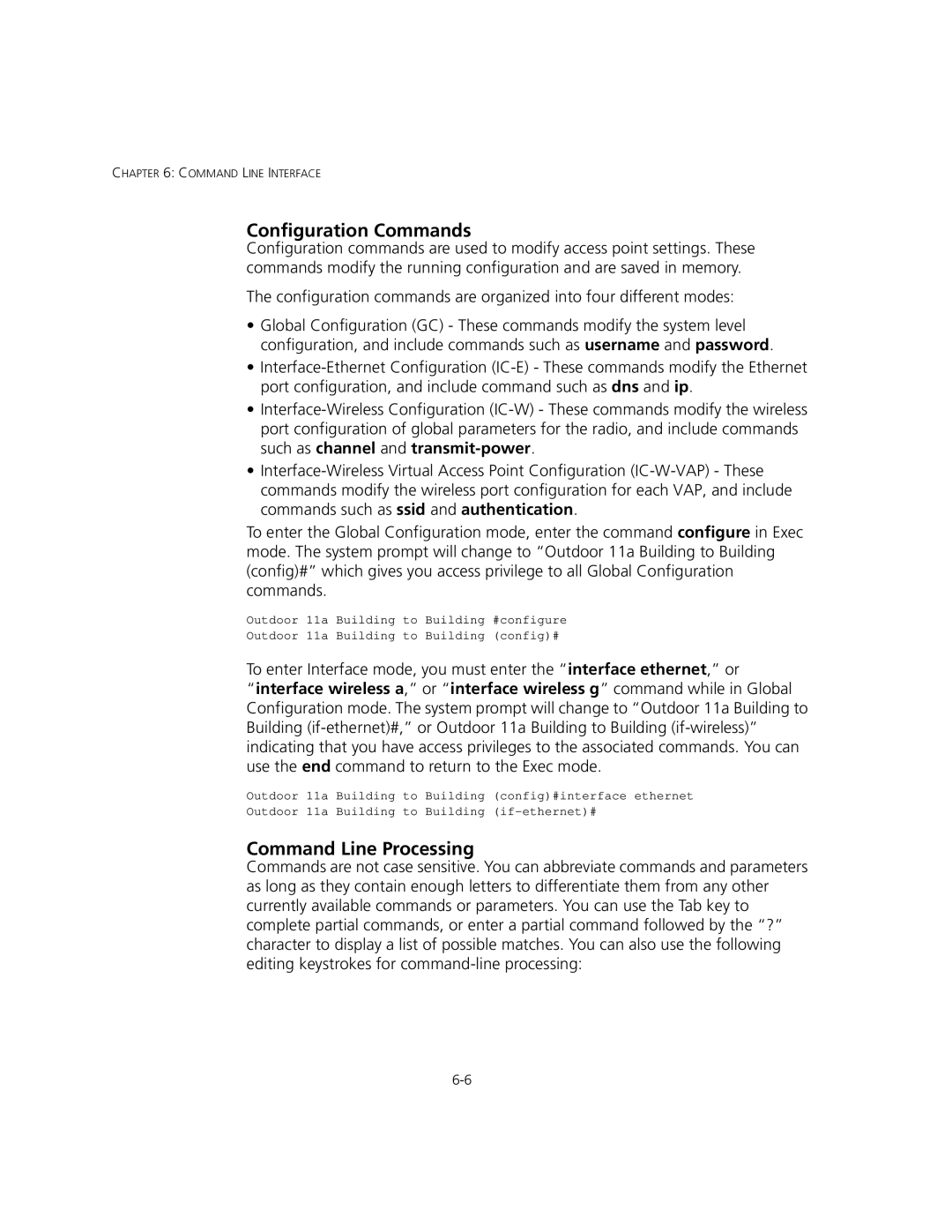CHAPTER 6: COMMAND LINE INTERFACE
Configuration Commands
Configuration commands are used to modify access point settings. These commands modify the running configuration and are saved in memory.
The configuration commands are organized into four different modes:
•Global Configuration (GC) - These commands modify the system level configuration, and include commands such as username and password.
•
•
•
To enter the Global Configuration mode, enter the command configure in Exec mode. The system prompt will change to “Outdoor 11a Building to Building (config)#” which gives you access privilege to all Global Configuration commands.
Outdoor 11a Building to Building #configure
Outdoor 11a Building to Building (config)#
To enter Interface mode, you must enter the “interface ethernet,” or
“interface wireless a,” or “interface wireless g” command while in Global Configuration mode. The system prompt will change to “Outdoor 11a Building to Building
Outdoor 11a Building to Building (config)#interface ethernet
Outdoor 11a Building to Building
Command Line Processing
Commands are not case sensitive. You can abbreviate commands and parameters as long as they contain enough letters to differentiate them from any other currently available commands or parameters. You can use the Tab key to complete partial commands, or enter a partial command followed by the “?” character to display a list of possible matches. You can also use the following editing keystrokes for
